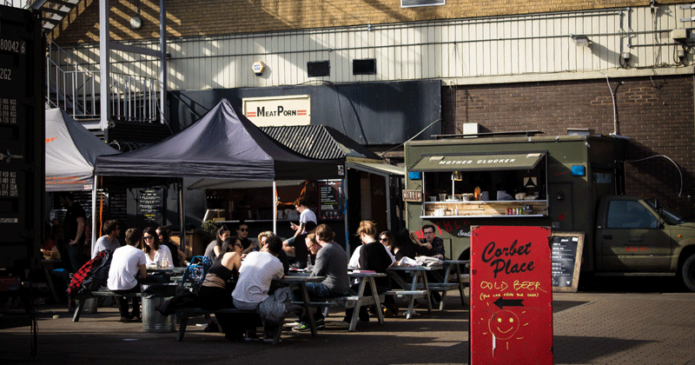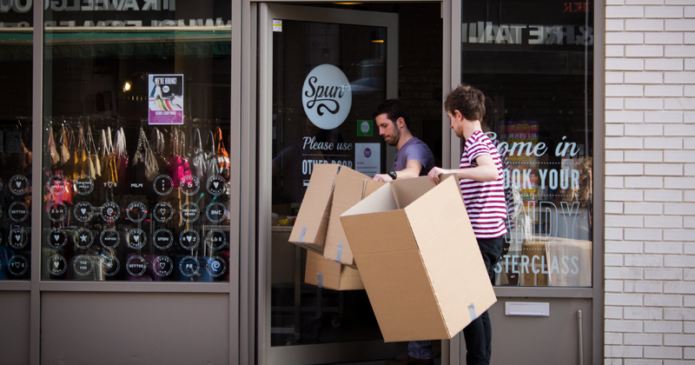
Speed Of Change
During my time working with the Coveo team over the last few months, listening to customer stories during online pizza lunches and reflecting on key themes in these posts, it is the sheer speed of change that hits me the most.
Every week is epic. Jam packed with significance. It feels reality has superseded the box set for fast paced drama.
At the time of writing, the UK government is trying to coax a reluctant population back to work. Their instinct says no. Fear of social density remains. Current retail footfall reflects this uncertainty. The COVID narrative coming from the US is certainly not helping.
Football might be back but it’s not the same. We enviously watch New Zealand rugby cheered on by live crowds. A reward for effective pandemic containment.
The recent UK government stimulus package acknowledges the seriousness of our situation. It is part of the national search for an ‘On’ button to kick start the economy.
Forever Changed
For me, the start point acknowledges things are likely forever changed. It remains to be seen the degree to which consumers eventually resume old habits or stick with those nurtured during lockdown. Our coping strategies currently centre on contactless engagement to buy stuff, sort out things and socialise.
On that topic, I experienced my first virtual Glastonbury with 3D stages, live DJs and everyone else dressed as avatars. Check out Sansar and their VR platform. It might even become the way we attend conferences in the future!

There is no going back 100% to the old behaviours and assumptions. That much is clear. Forward thinking organisations are proactively reshaping products and services to suit new needs and expectations.
Retailers are iterating a new mix of bricks and mortar with e-commerce and testing how to blend the two. Rightsizing of retail estates continues. Examples of live video service in virtual stores are emerging. AR is being used as part of the ‘try before you buy’ experience. The contactless economy is rapidly taking shape.
More With Less
As we pivot to new ways, the investment to get there will need to be funded from budget reallocation. This has the knock-on effect of reductions in many operating budgets and the challenge this presents.
Amongst the many affected, customer facing teams now need to achieve their core goals in significantly more cost-effective ways.
Less waste is one opportunity. Think about employee time being wasted or customers being lost to mediocre service. At the core of this challenge is ensuring rapid, low effort access to the right answers.
More specifically, how do we tackle the productivity dip triggered by an unexpected transition to homeworking? Part of the answer is to recognise that we must transition from simply working harder to working smarter if we are to avoid burnout in the medium term. So, what solutions can help us in the background to pick through a maze of options and offer us the shortest path to our outcome?
And if we can save time and boost productivity can we then prioritise the human touch to help customers and employees when it really matters? Too many web sites are still apologising for long queues to reach live assistance.
These are topical issues that matter to many of us as evidenced in the 2020 Institute of Customer Service annual report which was partially researched during lockdown. This shows consumers put employee well-being and care for vulnerable customers at the top of the priorities they think organisations need to be focused on during the recovery.
Efficiency Versus Effectiveness
While recessions tend to provoke efficiency mindsets, I’d argue that focussing on effectiveness is a better choice.
There are many studies that show how much time is wasted by employees trying to find information. Generally, this grows in line with the size and complexity of organisation. Tribal behaviour influences the way information is managed. Often operating in the context of localised needs.
While this approach supports decentralised, entrepreneurial cultures, it has downsides. The main one being that the common good suffers. There is no single version of truth that can become a self-service point for everyone.
The consequence is wasted time for subject matter experts who find themselves becoming broken records for the same information. And wasted time for those trying to track down answers and waiting for limited SME availability.
As a result, we lose time looking for information and we lose time if we cannot scale subject matter expertise. This becomes a greater issue during recessions when headcount is shed and remaining employees have to double down on expanded workloads.
Personal effectiveness becomes key. As does reduced effort if we value everyone’s mental health. On that basis I would recommend an end user investigation that quantifies time wasted looking for information. I bet you will find it costs a lot to remain disorganised!
Of course, the same logic applies to customers. They want outcomes not excuses. They want the happy path to their outcome. Not an emotively traumatising one. As such, it is now time that self-service effectiveness steps up as contactless engagement gains traction. The technology is ready and the time to value is surprisingly short for anyone concerned about busy digital agendas and becoming overloaded.
Self Service Adoption
Relevance is what makes self-service an effective channel and satisfying experience. It is the ability to observe and respond to the real time context of a customer situation. This is based on predictive analytics which grows in accuracy over time with expanding behavioural datasets.
As a result, customers will experience a guided, optimised path to the right outcome. This reduces cognitive effort resulting in positive emotive memory. One of the key foundations of brand loyalty.
In a busy world where time is even more precious and a heightened state of anxiety over jobs, health and restricted lifestyle colours our state of mind, we need to make finding answers a simple task. In fact, we should be aiming to remove the need to search entirely.
Instead it should be a recommended option we simply pick.




